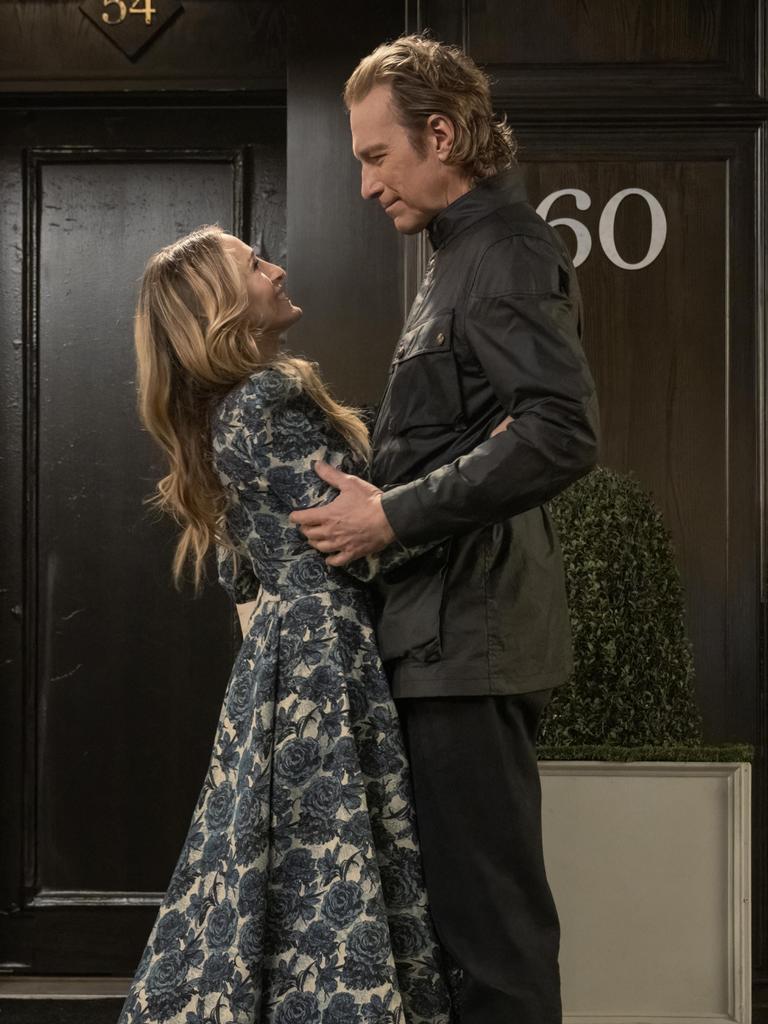One big problem with new Anne Hathaway rom-com The Idea of You
Critics and audiences are loving Anne Hathaway’s new rom-com The Idea of You – but the movie has one giant problem. WARNING: Spoilers.

WARNING: Spoilers for The Idea of You below.
Anne Hathaway sparkles in the new rom-com The Idea of You, playing a 40-year-old single mum who falls for a twenty-something boy band star (played by Nicholas Galitzine) – but the film suffers from an infuriating final act.
First, the positives: The leads are both perfectly cast, with palpable chemistry from their first chance encounter backstage at Coachella.
Hathaway is soulful and sexy as LA art gallery owner Solène, still licking her wounds from a brutal divorce, while Galitzine is utterly charming as Hayes, the handsome young heart throb who sweeps her off her feet.
Released on Amazon Prime this week, the film has already been a hit with critics, while viewers have praised it for “fixing” the original downbeat ending of the book it’s based on.
I have to disagree.
Here’s how The Idea Of You ends – spoiler alert, obviously.

As public scrutiny on Hayes and Solène’s relationship grows, their on-again, off-again romance finally reaches a breaking point. She declares that the pressure is getting too intense, particularly for her teenage daughter Izzy, and they need to break up, despite the fact they’re both desperately in love with each other.
This seems like a slightly flimsy excuse for a break-up: We see Solène’s daughter complain that the students at her high school are teasing her about her mum’s new boyfriend, and we watch as Solène reading mean comments about herself on the internet, but it doesn’t seem like anything true love (plus a pop star’s lifestyle of security teams and private jets) couldn’t ameliorate.
Heartbroken and desperate not to lose Solène for good, Hayes leaves her with a plea: “Just promise me you will revisit this in five years. Izzy will be out of school living her best life, and I’ll be some D-list celebrity that nobody gives a s**t about.” Solène reluctantly agrees to this deal.

Cut to five years later.
Solène is alone on the sofa, morosely watching TV, where she’s presumably been for the past five years. She channel surfs The Graham Norton Show, where Hayes – now a successful solo artist – is being interviewed. He tells Graham he’s about to jet off to LA to see someone special.
The next day, Solène is working in her gallery, when in walks Hayes.
He’d waited.
She’d waited.
They kiss.
End credits.
This only serves as a fairytale ending if, like the film, you brush past the previous five years – that’s 1,825 days, or approximately 18 Taylor Swift album releases – that these two lovebirds arbitrarily forced themselves to be without each other. Five. Whole. Years.
I would’ve been more satisfied if the movie replicated the book’s more downbeat original ending: Solène called it off, then they both moved on with their lives. Five years of doleful pining on the couch is not a happy ending!


It all feels very similar to a divisive plot point in last years’s season 2 finale of Sex and the City reboot And Just Like That.
After problematic fave Carrie Bradshaw had spent most of the season reconnecting with old flame Aiden Shaw, in the final episode he gave her a bizarre proposal: His teenage son really needed his full attention. Could she please wait five years, at which point they could resume their relationship?
At least in that scenario, the season ended on something of a cliffhanger so we haven’t yet seen Carrie’s proper response to this request (if it’s anything other than “I am 56 years old. Are you insane?” I am boycotting the new season).
In case this is in danger of becoming a trend, let me paraphrase some deep Sex and the City lore to state for the record: If the love of your life asks you to chill for half a decade while he gets his s**t together, he’s just not that into you.






